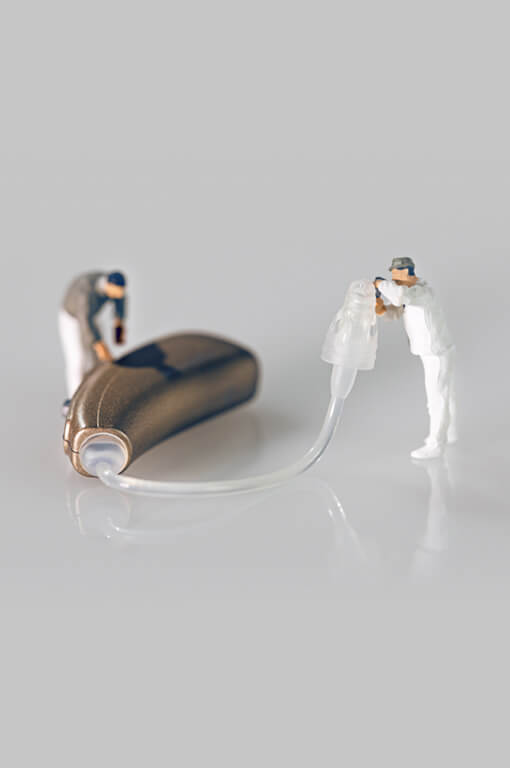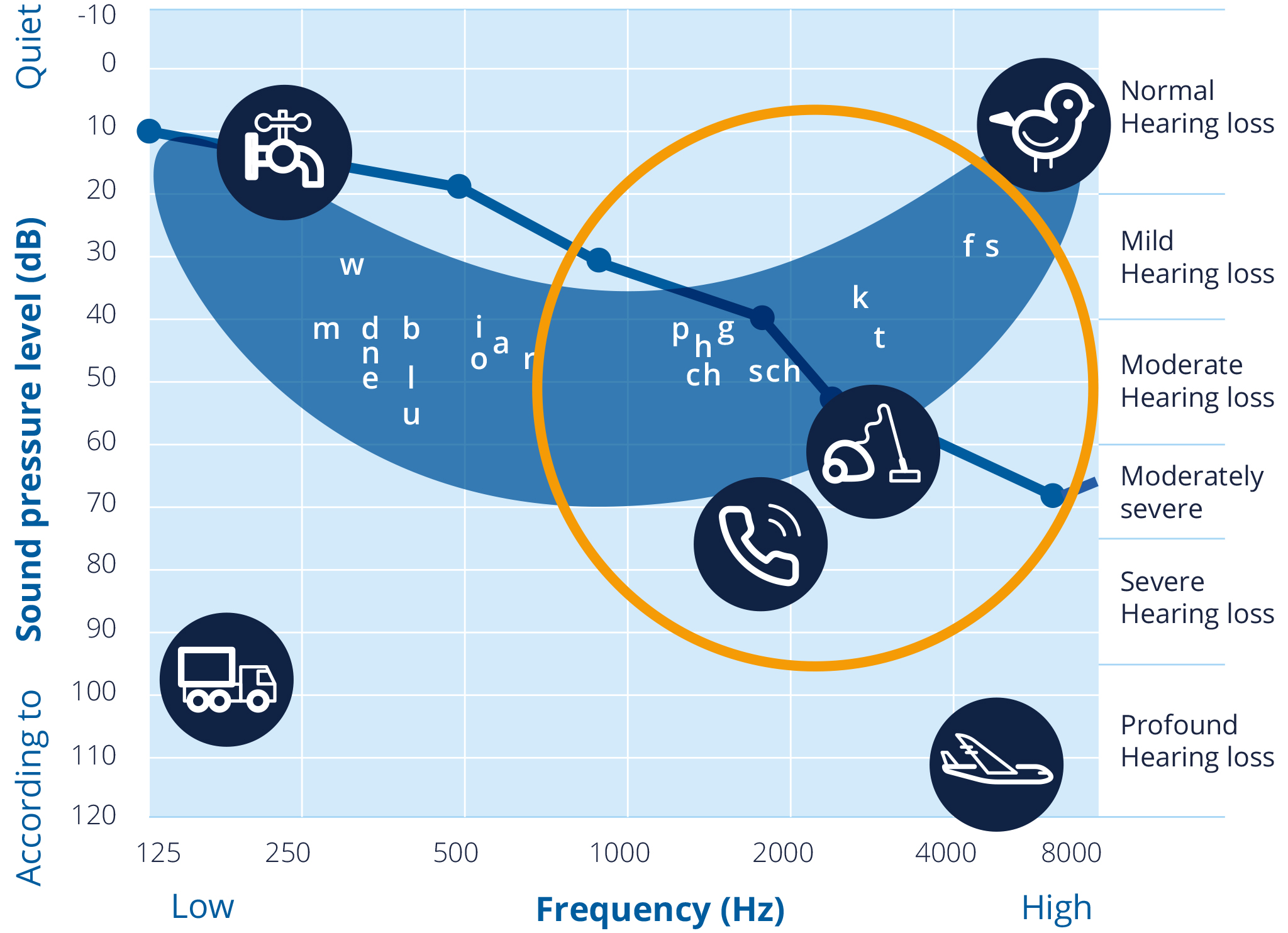
What does a hearing care professional do?
An audiologist/hearing specialist is an experienced, highly trained health professional who performs hearing assessments on adults and children. In addition to helping with hearing loss, they can identify other possible causes. For example, ringing in the ear (tinnitus) or too much earwax can weaken hearing capabilities. A hearing care professional is able to perform various hearing tests and recommend an appropriate course of action.
At hear.com, we have a team of hearing aid experts, audiologists, and hearing specialists ready to help you find the best solution. Our partner clinics have certified professionals whose aim is to improve your quality of life. You can be sure of optimal treatment, a comprehensive assessment of your hearing ability, and expert advice on the latest hearing aids.
Table of Contents
- When should you visit the hearing care professional?
- The internet and your hearing health
- What happens during the initial consultation?
When is the right time to see a hearing care professional?
If you are already showing signs of hearing loss, the answer is today. Some of you may need outside stimulus to do this. For example, someone might indicate your need to listen to things repeatedly. This can be frustrating for you and those around you. If family members suspect that you may have hearing loss, you should react quickly, as this is the only way to restore the quality of life you are used to. That being said, there are a few other signs that an audiologist/ hearing specialist might be the right person to talk to:
- People complain that your TV is too loud
- You need to keep asking others to repeat what they are saying
- You feel tired after a conversation
- You have hearing problems in noisy, crowded rooms
- They can hear but have difficulty understanding
- Your loved ones will often ask you to have your hearing checked
The internet and your hearing health
The Internet can help you identify symptoms and solutions about possible hearing loss before you go to the ENT doctor or hearing care professional. The internet can give you a rough idea of what might be causing your symptoms, and when it comes to hearing loss, the internet is a good place to start looking for solutions. After all, you are reading about hearing care professionals and audiology on our website.
But you shouldn’t leave it at that! A certified audiologist should examine your ears, check your hearing, and recommend a solution that suits your individual needs. You will not get such a personally tailored service anywhere on the Internet. Online hearing tests may give an indication of your problem, but not a complete picture of it.
What does a hearing care professional do during the initial consultation?
The hearing care professional begins the agreed appointment with a consultation. After the health insurance data has been read in, an anamnesis is taken. During the anamnesis, the hearing care professional clarifies how you perceive the hearing loss, in which situations you have hearing difficulties (while watching TV, in company, in meetings, etc.), whether there is a previous medical condition and whether you have a hearing aid prescription from an ENT doctor entail.
An otoscopy will then be performed: the hearing care professional will look into your ear using an otoscope. If necessary, an impression will be made of your ear canal to determine whether your ear canal is suitable for an in-the-ear hearing aid. The hearing test is carried out after the impression has been taken. The hearing test consists of two parts: tone audiometry and speech audiometry, both are measured in decibels and are graded as follows:
- Up to 25 dB: no or only very little impairment.
- Up to 40 dB: low hearing loss.
- Up to 60 dB: moderate hearing loss
- Up to 80 dB: severe impairment
- From 81 dB: severe hearing loss
If the hearing care professional determines that you have hearing loss, he or she will advise you on the various hearing systems – taking into account your preferences. If you decide on a hearing aid of your choice, the hearing aids are fitted and calibrated. As soon as you are satisfied with your new hearing situation, the hearing care professional will arrange another appointment for fine adjustment.


